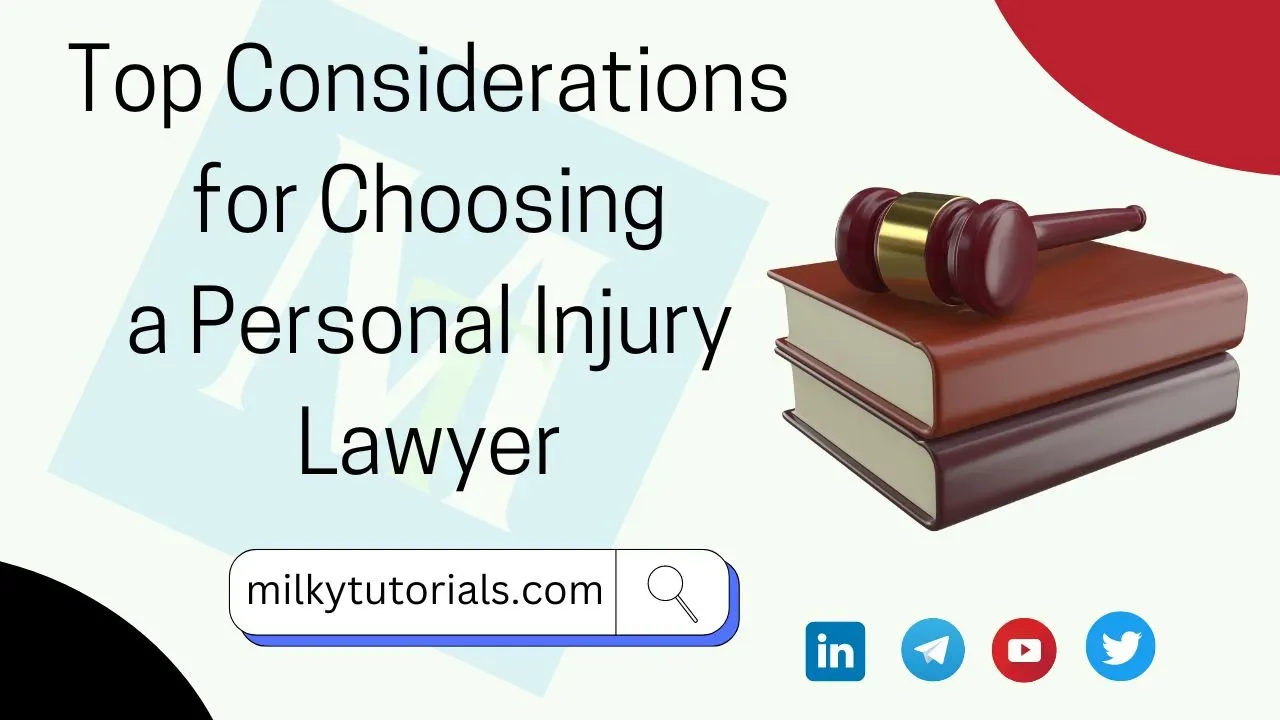
Being a victim of a personal injury can be very traumatising and or very stressful. And with the different ways many people handle situations, it is quite different that others will just overlook some situations while others won't do same.
Well, a serious personal injury can leave you feeling overwhelmed and unsure of where to turn. Securing the right legal representation is crucial in navigating the complexities of a personal injury case and maximizing your compensation.
Well, in this article today, we will be bringing to you some important things you should keep in ,ind when searching for a Personal injury Lawyer who will assist you along your parcour.
Considerations for Choosing a Personal Injury Lawyer this Year
Who is a Personal Injury Lawyer?
First of all, a lawyer is a qualified and professional individual who helps and represents people in legal problems. They are also referred to as advocates, attorneys, barristers, canon lawyers, civil law notaries, counsel, solicitors, legal executives, and public servants.
Additionally, a personal injury lawyer is a qualified professional who specializes in defending clients involved in personal injuries as they pursue compensation for any losses.
Due to their understanding of the law and ability to help others comply with it, these attorneys are very valuable. And we'll start below with the first considerations you ought to make when looking for a Personal Injury Lawyer.
1. Expertise in Your Injury Type
Personal injury law encompasses a wide range of cases. Look for a lawyer with extensive experience in cases similar to yours.
This could involve car accidents, medical malpractice, slip and fall accidents, product liability, or wrongful death suits. An attorney specializing in your specific injury type will have a deeper understanding of the relevant laws, medical complexities, and negotiation strategies.
2. Track Record and Results
Experience is key, but results speak volumes. Ask potential lawyers about their past settlements and verdicts in cases like yours. Look for a lawyer with a history of successfully securing significant compensation for thier clients.
3. Contingency Fee Structure
Most personal injury lawyers work on a contingency fee basis. This means you won't pay any fees upfront unless they win your case.
The typical contingency fee percentage ranges from 25% to 40% of the final settlement or verdict. Ensure you understand the fee structure and any additional costs associated with your case.
4. Communications and Availability
Throughout your case, clear and consistent communication with your lawyer is paramount. Choose a lawyer who is readily available to answer your questions and address your concerns.
Feeling comfortable discussing your case openly and honestly is essential for a successful attorney-client relationship.
5. Reputation and Client Reviews
Research the lawyer's reputation online and within the legal community. Look for reviews from past clients to get a sense of their experience working with the lawyer. Professional affiliations and awards can also be indicators of a lawyer's qualifications.
6. Schedule Consultations
Many personal injury lawyers offer free initial consultations. Utilize this opportunity to discuss your case in detail and get a feel for the lawyer's personality and approach. Don't hesitate to interview several lawyers before making your final decision.
Additional Considerations:
Comfort Level: Trust your gut instinct. You should feel confident and comfortable with the lawyer you choose. This is someone who will be advocating for you during a challenging time.
Location: While location is not always a dealbreaker, considering an attorney familiar with local courts and legal procedures can offer some advantages.
Final Thoughts on choosing a lawyer
Remember, choosing the right personal injury lawyer can significantly impact the outcome of your case. By carefully considering these factors, you can ensure you have a skilled and dedicated legal professional on your side.
However, as we previously mentioned, there are a few crucial factors you should take into account when looking, such as experience, time availability, costs, and—above all—a prior record.